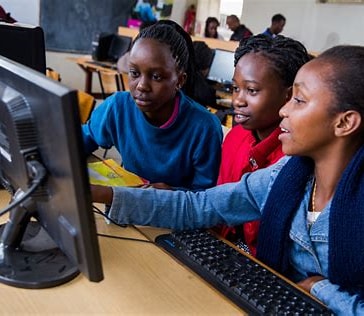Digital Literacy in Ghana: More Than Just Knowing How to Use a Phone
By Rebecca Aboagyewah Oppong | Veebeckz Tech Media | Published on 10th January, 2025
Introduction
In an era where nearly everything is going digital—from education and banking to health and agriculture—digital literacy has become a basic necessity, not a luxury. But in many parts of Ghana and across Africa, digital literacy is still misunderstood as simply knowing how to operate a smartphone or create a Facebook account.
True digital literacy goes beyond that. It includes knowing how to navigate safely online, how to evaluate information critically, and how to use technology for learning, work, and civic participation. At Veebeckz Tech Hub, we believe empowering people with digital skills is one of the most transformational ways to unlock development and dignity.
1. What Is Digital Literacy—Really?
Digital literacy is the ability to find, evaluate, create, and communicate information using digital technologies.
It involves:
- Navigating apps, emails, websites, and digital tools
- Using productivity tools like Google Docs or Excel
- Understanding online privacy and digital security
- Identifying fake news or misinformation
- Collaborating virtually via Zoom, Teams, or WhatsApp
- Coding and computational thinking (at advanced levels)
A market woman using MoMo isn't fully digitally literate until she also knows how to avoid fraud, use Google Maps to locate suppliers, and keep digital records of her business.
2. The State of Digital Literacy in Ghana
According to the Ghana Statistical Service, while mobile phone penetration is high (over 80%), digital literacy levels are far lower, especially in rural and underserved areas. Many young people graduate with ICT as a subject, but can’t compose an email or create a CV.
Barriers include:
- Lack of access to devices and the internet
- Poor digital infrastructure in schools
- Limited teacher capacity in digital tools
- Gender digital divide — girls often have less exposure
Veebeckz Tech Hub’s digital bootcamps in Asokore and Abuakwa show that once young people are introduced to tools like Canva, Google Forms, and Notion — their creativity and confidence explode.
3. Why Digital Literacy Matters for Everyone
Group and Benefits of Digital Literacy in Ghana
- Students: Access to global learning resources, online scholarships, and virtual exchange programs
- Artisans & Traders: Digital marketing, MoMo bookkeeping, online sales
- Teachers: Interactive teaching methods, access to e-content
- Health Workers: Use of e-health platforms and digital reporting tools
- Farmers: Weather updates, online marketplaces
- Parents: Digital parenting, school apps, e-wallets
At our Girls in Byte program, we train young girls to build simple websites and understand how the internet works. The result? They become confident digital citizens.
4. Programs That Are Closing the Gap
- Veebeckz Tech Hub's “Digital Basics for All” – A free workshop series across communities that teaches digital hygiene, email setup, and online job search.
- Go Digi Ghana – Our initiative to help artisans and SMEs build digital identities.
- Byte Explorers Club – A weekly tech club for schoolchildren, introducing them to safe browsing, typing, and coding.
- Digital Skills for Women Entrepreneurs – In collaboration with local NGOs and churches, this targets women running home-based or informal businesses.
5. What Can Be Done Nationally
For Ghana to fully realize its digital future:
- ICT must be practical, not just theoretical — teach students real-world tools.
- Train teachers, especially in rural schools, with continuous digital upskilling.
- Community hubs and libraries must offer free digital access and tutorials.
- Promote digital inclusion for girls, PWDs, and the elderly — everyone matters.
- Government-private tech partnerships must prioritize digital citizenship campaigns.
6. It’s Not Just About Jobs—It’s About Agency
Digital literacy enables citizens to:
- Understand public policies via websites
- Register for national IDs or services
- Engage in civic activities
- Avoid scams and misinformation
- Protect their data and digital rights
When people can navigate the digital world safely and smartly, they are empowered—economically, socially, and politically.
Conclusion
Digital literacy is the foundation of every other digital initiative. Without it, efforts in e-learning, fintech, telemedicine, and e-governance will fail to reach the masses. We must treat it as a development priority—just like roads or electricity.
